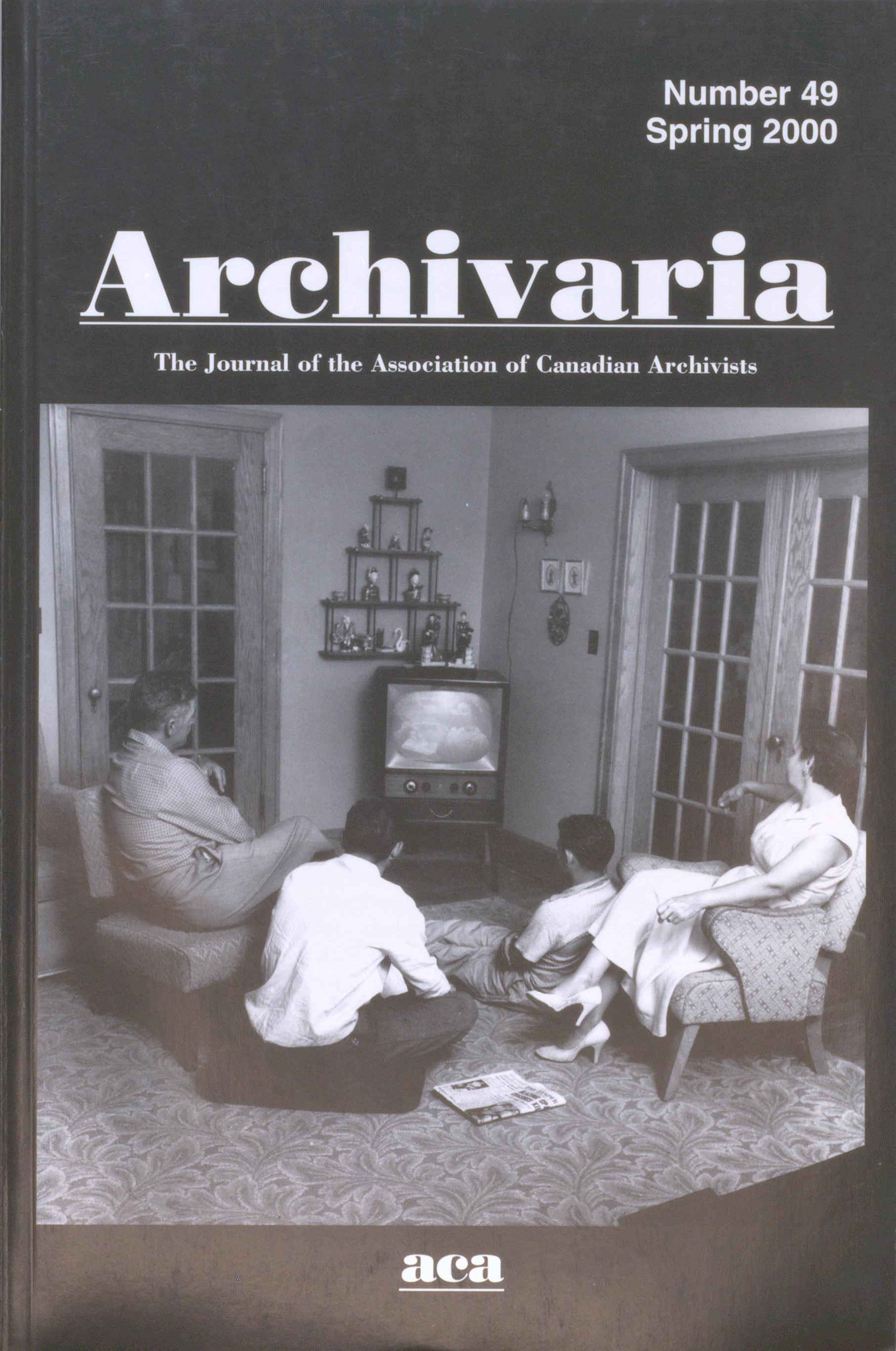Telling Stories around the "Electronic Campfire": The Use of Archives in Television Productions
Abstract
This article develops an archival perspective on the use of archival documents in television productions and explores the significant public programming opportunities presented to archivists by the growing history-on-television industry. Television has become a significant teacher of history, and it is essential that archivists acquire a basic level of visual literacy. Archivists need to be able to view television programmes and the television production process critically. Although some debate over the merits of historical television programmes and films has developed in the literature of professional historians, such archival literature is limited. The contextual approach to archives, grounded in the idea that the intellectual focus of archival administration is knowledge of the history of the records or the context of their creation, provides thetheoretical lens through which the use of archives on television will be analysed. The article incorporates responses to two surveys, of archivists and of documentary producers and researchers. It concludes with several suggestions to archivists for public programming designed to facilitate and improve the uses of archives in television broadcasting. The article shows that archivists can make a vital contribution to historical understanding and the public interest by taking advantage of opportunities provided by television.
RÉSUMÉ
Cet article développe une perspective archivistique relativement à l’usage dedocuments d’archives dans les productions télévisuelles et explore l’importante opportunité de programmation publique qu’offre l’industrie de l’histoire à la télévision. Comme la télévision enseigne maintenant l’histoire, il est essentiel que les archivistes acquièrent les rudiments du langage de la télévision. Il ont besoin d’aborder de façoncritique les programmes et les productions de télévision. Alors que des débats sur les mérites de la télévision et du cinéma historiques ont vu le jour dans les écrits des historiens professionnels, il y en a bien peu en archivistique. L’approche contextuelle desarchives, basée sur l’idée que le point focal de l’administration archivistique est la connaissance de l’histoire des documents ou de leur contexte de création, offre une lorgnette théorique par laquelle l’utilisation des archives pour la télévision sera analysée. L’article incorpore les réponses à deux sondages effectués auprès d’archivistes, de producteurs de documentaires et de chercheurs. Il conclue avec des suggestions adresséesaux archivistes pour des programmes publics destinés à faciliter et à améliorer les utilisations des archives pour fins de télédiffusion. L’article montre que les archivistes peuvent apporter une contribution essentielle à la compréhension historique et à l’intérêtpublic en tirant profit des opportunités qu’offre la télévision.
Authors of manuscripts accepted for publication retain copyright in their work. They are required to sign the Agreement on Authors' Rights and Responsibilities that permits Archivaria to publish and disseminate the work in print and electronically. In the same agreement, authors are required to confirm that "the material submitted for publication in Archivaria, both in its paper and electronic versions, including reproductions of other works (e.g. photographs, maps, etc.) does not infringe upon any existing copyright." Authors of manuscripts accepted for publication retain copyright in their work and are able to publish their articles in institutional repositories or elsewhere as long as the piece is posted after its original appearance on archivaria.ca. Any reproduction within one year following the date of this agreement requires the permission of the General Editor.





